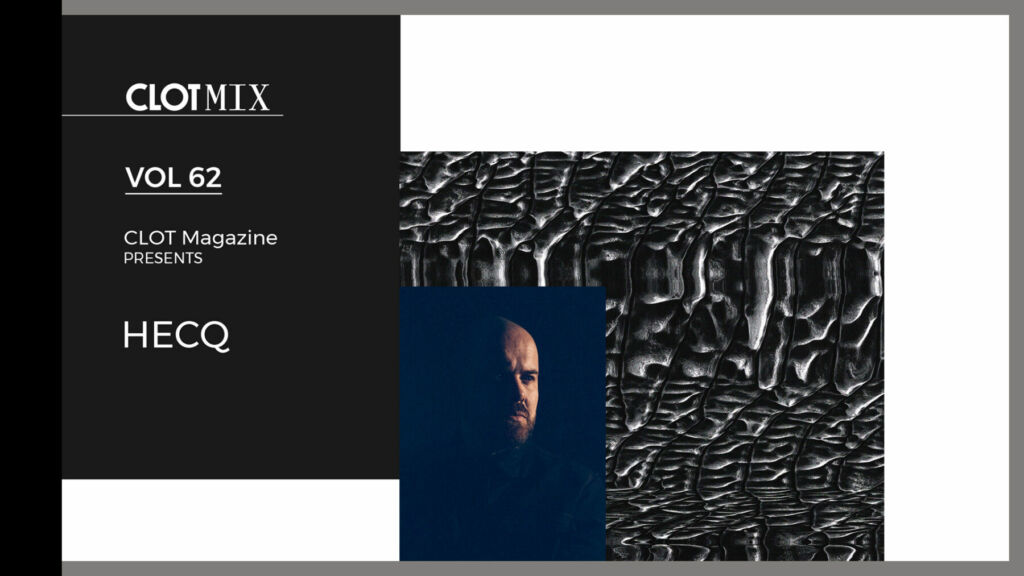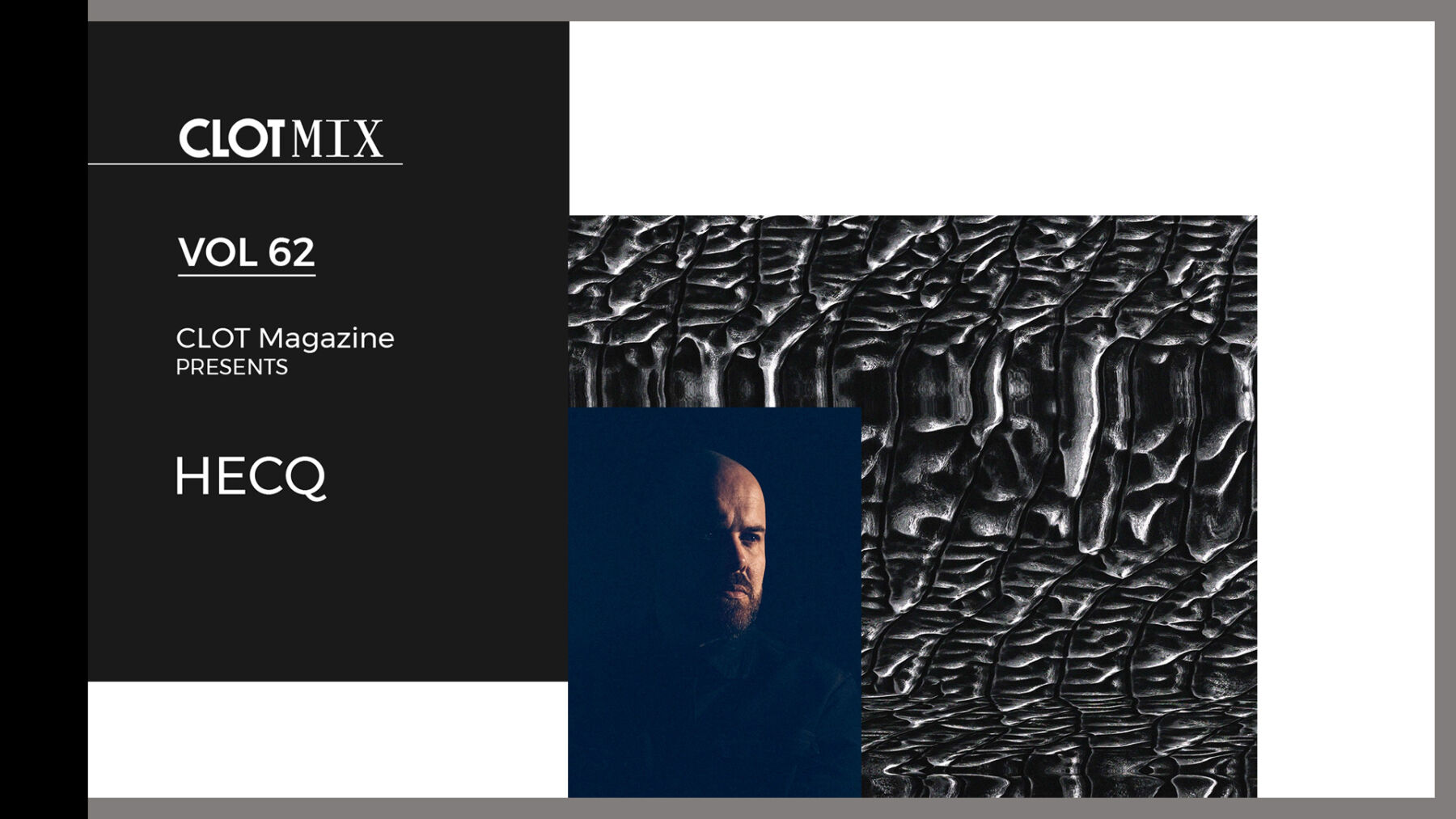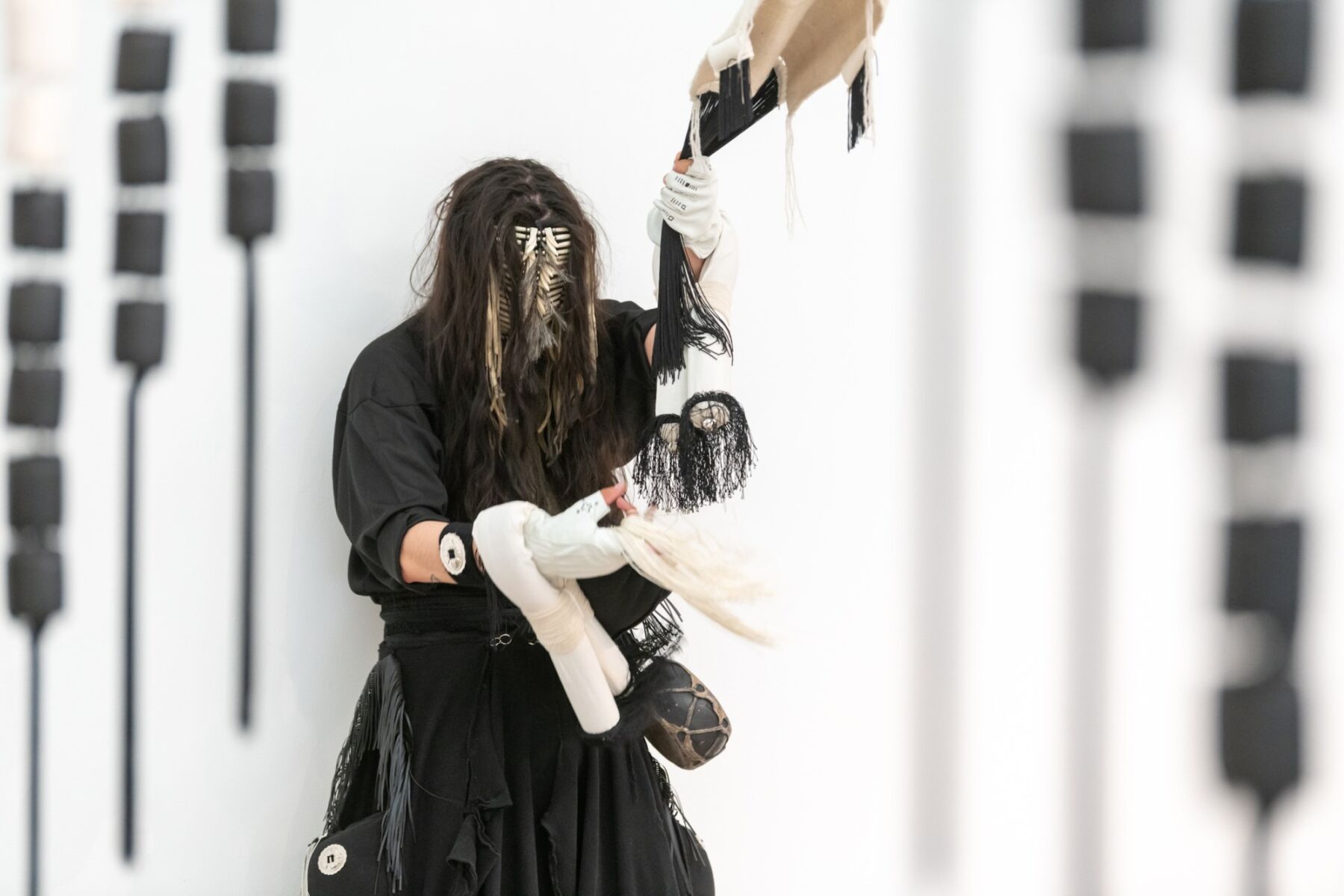Text by CLOT Magazine

The next mixtape comes from Heqc (an alias of Ben Lukas Boysen), an electronic music composer, producer and sound designer based in Berlin, with a selection of tracks that give a insight into some of his compositional interests.
Boysen has classic training, being the son of opera singer Deirdre Boysen with the works of Bruckner, Wagner and Bach laid an important foundation in shaping his practice. With his moniker Hecq, he’s released several albums since 2003, exploring a wide range of styles from ambient to breakcore and releasing mostly on Hymen records. Under his own name, the artist has also released a series of productions on labels such as erased tapes and ad noiseam.
His latest release as Hecq this year after a break since 2017, Form, co-released on Mesh, Max Cooper’s record label, is defined as an echoic take on rave and electronica and a modern shapeshifting of styles, showing the artist’s poly-faceted compositional ranges. Pulsating and syncopated synth lines built up with minimal ambient melodies, dub bases, and breaks fill the album with a breathable summery feel. His own productions aside, Boysen has led numerous workshops on composition and sound aesthetics, as well as creating custom sound designs for films, commercials, video games and installations.
The mix he has prepared for us is mainly based on pieces that play with overlaying frequencies and oscillations, focusing on the fabric of music without going overboard compositionally. Boysen shares that these pieces are always a good reminder and exercise in exploring and understanding the nature of sounds around us (primarily while working with electronic instruments) and appreciating the beauty of simplicity.
You have rebooted your experimental Hecq project with a new five-track EP titled Form on Max Cooper’s Mesh imprint; How has your creative process been like for this release? Has it changed from your previous releases?
Every release has had a life of its own. This can be seen as a renarration of my youth and coming of age when club music and IDM were everything to me. It is still important today, but I neglected it for too long. So, this release follows the “Hecq codex” of covering a specific topic. However, the topic is new and uncharted territory for my discography.
You said that Hecq has always been a highly flexible project. Previous albums included induction microphone-based recordings and tape loop investigations. What are you technically and conceptually (if so) exploring with this new EP Form?
The basic technical aspect of this EP is rather classical. It’s a mix of digital and anlalog synthesis and sampling. Due to the nature of its inspiration, this seemed like the best route for me – late 90ties / early 2000 club music was made this way, so I’ll do that too. It’s a „going back to the roots“ in style and technique for me, even though some aspects of these roots are somewhat new to my practice.
You have been involved in projects like Brainwaves, which take advantage of influencing our emotions and behaviours rather than being only a tool that helps with sleep, anxiety, and concentration, and in the VR installation Foreign Nature for which you created the music. How do you approach the creative process for such different projects, and why did you get involved?
Music is, first and foremost, about emotions for me, even if it’s more functional (like the breath work app Respira). Even then, it needs to connect emotionally first and then evolve functionally. I’m always happy to be part of a project that is more than the sum of its parts and can elevate my understanding of composition. This would be true for both Respira and Julius Horsthuis’ installation Foreign Nature – I had to dive into the ideas and creativity of somebody else, into existing concepts, and this is always a wonderful challenge. So I can learn and progress while often creating something that can help people beyond just sounding nice.
What are your main inspirations for your artistic practice these days? What have you been most excited about recently?
Rather classical, really…reading, watching movies and visiting exhibitions when possible. Most inspirations come from different outlets; trying to implement approaches from other artistic fields into my work is like my creative warhorse.
What is your relationship with technology nowadays? And how do you cope with technology (screen/digital) overload?
I’m still getting fed up with my screen time and love my machines dearly, but what helps me is to see my work day as a 9-to-5 job as much as possible. The not-uncommon industry attitude of burning the candle from both ends and being available at any time is the bigger problem. I do my best not to participate in that, taking walks, meditating and doing yoga and just trying to have everyday life as much as possible. This raises tolerance for the workday’s technological aspects and keeps me sane.






